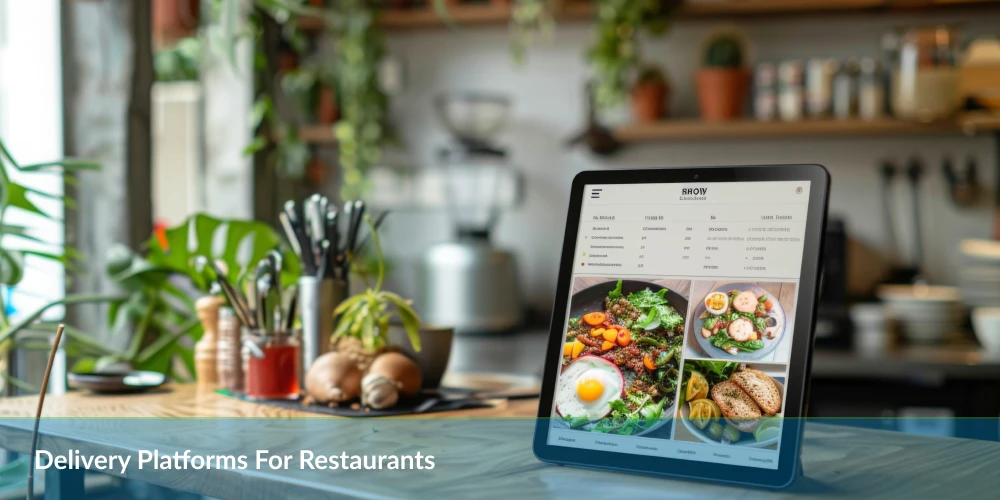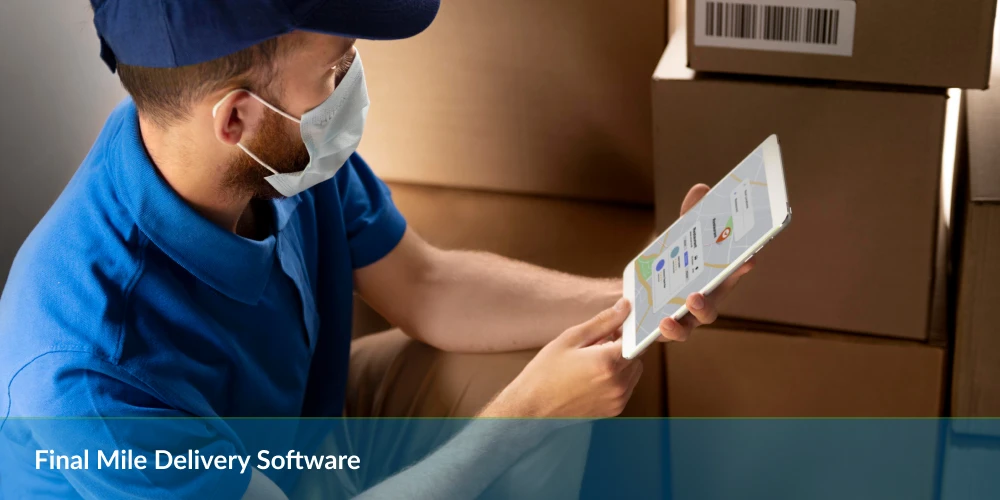Table of Contents
Technological innovations, increased e-commerce demand, and sustainability concerns have rapidly transformed the logistics industry. A recent survey by Statista predicts the global logistics market will reach a staggering $14 trillion by 2028, emphasizing the growing significance of efficient logistics management.
As technological advancements continue to reshape the industry, businesses constantly seek ways to streamline operations and meet dynamic customer demands. Shipment tracking software plays a pivotal role in achieving this goal by providing real-time visibility into the movement of goods, ensuring customers can track their deliveries at every step.
This blog delves into the vital role of shipment tracking software in modern logistics and discovers its impact on customer satisfaction, operational efficiency, and overall competitiveness in the global market.
Importance of visibility and customer satisfaction in modern logistics
A study by Deloitte found that 83% of consumers consider shipment tracking a crucial factor in their purchasing decisions.
Real-time tracking and monitoring capabilities have been game changers in improving the accuracy of delivery times. It is not only valuable for the customers but also the business owner. Having visibility of the orders helps reduce manual efforts in tracking, avoiding fraud, preventing delays, and taking necessary actions in emergencies. Here’s a concise breakdown of why:
- Efficiency: Real-time visibility into shipments, inventory, and orders allows for better resource allocation, reducing wastage and cutting costs.
- Customer Expectations: Consumers now expect transparency and control over their deliveries. Meeting these expectations is crucial for retaining them.
- Competitive Advantage: Companies with superior visibility and customer satisfaction gain a competitive edge by attracting and retaining clients.
- Supply Chain Optimization: Visibility enables businesses to spot bottlenecks and make data-driven decisions, improving overall supply chain efficiency.
- Reduced Errors: Accurate information reduces errors in order fulfillment, minimizes returns, and improves customer trust.
- Data-Driven Insights: Visibility provides data for continuous improvement, helping logistics teams make informed decisions and adapt to changing market conditions.
- Sustainability: Improved visibility aids in eco-friendly practices by optimizing routes, reducing fuel consumption, and minimizing environmental impact.
- Flexibility: Adapting to unforeseen circumstances is easier with real-time data, ensuring customer satisfaction even in challenging situations.
Before we dwell on the imperative features of modern shipment tracking software, let’s discover how shipment tracking evolved from its early days to its contemporary form.
Evolution of Shipment Tracking Software
Shipment tracking software has evolved remarkably, marking a considerable transformation in the logistics industry. From its humble beginnings as an elementary system primarily focused on basic location tracking, it has evolved into a sophisticated tool offering comprehensive, real-time insights.
In the early stages, basic location tracking was the software’s core function, giving customers a vague notion of their package’s whereabouts. Accessibility was another challenge, as these budding systems were confined to specific, less user-friendly channels like dedicated customer service hotlines.
The early systems also heavily relied on manual data entry, which introduced a substantial risk of errors and led to delays in providing updates. Their information was often minimal, typically limited to confirming when a package was dispatched and when it eventually arrived at its destination.
Today, tracking software leverages GPS, RFID, IoT devices, and sensors for precise location tracking, while AI-driven algorithms provide predictive insights and automation for route optimization. Mobile apps and user-friendly interfaces ensure easy access to tracking data. Blockchain enhances security, and integration with e-commerce platforms and third-party logistics services expands capabilities.
This evolution highlights how tracking software has adapted to meet the growing demand for real-time information, accessibility, and accuracy, ultimately enhancing customer satisfaction and the efficiency of logistics operations.
Having explored the evolution of shipment tracking software from its rudimentary origins, let’s delve into its modern capabilities.
Key Features of Modern Shipment Tracking Software
Modern shipment tracking software is indispensable for optimizing logistics operations, enhancing transparency, and improving customer satisfaction. Such software boasts several key features:
- Real-time Tracking: Modern shipment tracking software provides real-time visibility into the location and status of shipments, ensuring both shippers and recipients can monitor progress accurately.
- Analyzing Driver Behavior: Modern shipment tracking software tracks driver behavior using GPS technology and sensors within the vehicle. It monitors speed, location, acceleration, braking, and idling time. This data is then analyzed to assess driver behavior, ensure compliance with safety regulations, and optimize routes for efficiency.
- Field Service Resource Planning (FSRP): Shipment tracking software equipped with FSRP streamlines shipments and field service coordination, maximizing productivity and minimizing delays for a seamless end-to-end logistics solution.
- Alerts and Notifications: Automated alerts and notifications keep stakeholders informed about any delays, delivery changes, or other crucial updates in the shipping process.
- Centralized Data: These solutions centralize shipment data, making it easier to access and analyze, leading to data-driven decision-making and efficient inventory management.
- Analytics and Reporting: Robust analytics tools enable users to generate reports, identify trends, and optimize shipping processes for cost savings and better service quality.
- Customer Self-service: Many modern systems offer customer self-service portals, allowing clients to track their shipments independently and reducing the workload on customer support.
- Integration Capabilities: Seamless integration with other business systems like e-commerce platforms, inventory management, and CRM systems streamlines workflow and data sharing.
- Mobile Accessibility: Mobile apps or responsive web interfaces ensure that users can access shipment information and updates on the go.
- Geofencing: Geofencing features provide customizable geographical boundaries for monitoring and alerting when shipments enter or leave specific areas.
Businesses can significantly improve their productivity and logistics operations by leveraging these features as we explore how they translate into tangible improvements in the next section.
Improving Operational Efficiency with Shipment Tracking
Enhancing operational efficiency with shipment tracking software is critical to modern logistics management. By leveraging technology to track shipments, businesses can streamline their operations in several ways:
- Optimized Routing: Shipment tracking allows for the real-time monitoring of delivery routes. It enables the adjustment of routes to avoid traffic, reduce fuel consumption, and make deliveries faster and more cost-effective.
- Inventory Management: Accurate tracking helps in managing inventory levels more effectively. Businesses can reduce overstocking or understocking issues by knowing precisely when shipments will arrive and planning accordingly.
- Reduced Manual Labor: Automation and real-time tracking minimize the need for manual data entry and phone calls to carriers, reducing the risk of human errors and freeing up labor resources for more value-added tasks.
- Customer Satisfaction: Shipment tracking enhances transparency, enabling businesses to provide accurate delivery times to customers. It boosts customer satisfaction by offering a better delivery experience and reducing inquiries about order status.
- Quick Issue Resolution: When delays or issues arise, shipment tracking allows businesses to identify and address them promptly, minimizing the impact on operations and customer service.
- Data-Driven Decision Making: The data generated by shipment tracking can be analyzed to identify trends and areas for improvement in the supply chain. This data-driven approach helps make informed decisions and optimize operations.
- Cost Reduction: Improved efficiency in routing, inventory management, and labor utilization ultimately leads to cost reductions, improving the bottom line for businesses.
By leveraging shipment tracking software, businesses can achieve improved efficiency, cost savings, and a distinct competitive advantage. NetworkON–a robust delivery and dispatch software is a tailor-made solution for comprehensive logistics management.
The NetworkON Advantage
NetworkON is the ideal solution for your logistics business, providing customized delivery and dispatch capabilities to enhance efficiency, streamline operations, and improve customer satisfaction.
With real-time tracking, route optimization, seamless integration, and comprehensive data insights, it offers a customized approach to meet your specific logistics needs, ultimately driving success and profitability for your business.To know more, email us at info@networkon.io or visit our website.
Frequently Asked Questions:
Q1: Why is shipment tracking considered crucial in modern logistics?
Shipment tracking is deemed essential in modern logistics because it provides real-time visibility into the movement of goods. It ensures customers can track deliveries at every step, enhances operational efficiency, and addresses dynamic customer demands, contributing to overall satisfaction.
Q2: How does shipment tracking software contribute to operational efficiency in logistics?
Shipment tracking software enhances operational efficiency by providing real-time visibility into shipments, optimizing routing to avoid traffic, automating tracking processes, reducing manual labor, and facilitating data-driven decision-making. These factors collectively lead to cost savings and improved productivity.
Q3: How does shipment tracking impact customer satisfaction in the logistics industry?
Shipment tracking significantly improves customer satisfaction by offering transparency, accurate delivery times, and customer-controlled tracking experiences. Meeting customer expectations for visibility and control over their deliveries is crucial for retaining clients and gaining a competitive advantage.
Q4: What are the key features of modern shipment tracking software?
Modern shipment tracking software comes equipped with real-time tracking, analyzing driver behavior, field service resource planning (FSRP), automated alerts, centralized data, analytics and reporting, customer self-service portals, seamless integration, mobile accessibility, geofencing, and more.
Q5: How has shipment tracking software evolved over time in the logistics industry?
Shipment tracking software has evolved from basic location tracking with limited accessibility to a sophisticated tool leveraging GPS, RFID, IoT devices, sensors, AI-driven algorithms, mobile apps, and blockchain. This evolution has aimed at meeting the growing demand for real-time information, accessibility, and accuracy.
Q6: What advantages does NetworkON offer as a shipment tracking solution for logistics businesses?
NetworkON provides a tailor-made solution for comprehensive logistics management, offering real-time tracking, route optimization, seamless integration, and comprehensive data insights. This solution is designed to enhance efficiency, streamline operations, and improve customer satisfaction for logistics businesses. For more information, contact them at info@networkon.io or visit their website.




0 Conversations